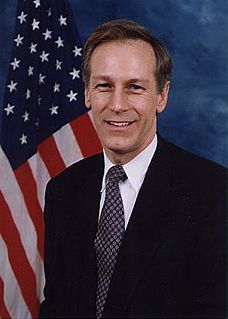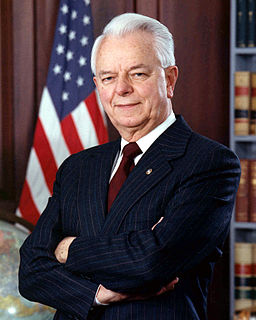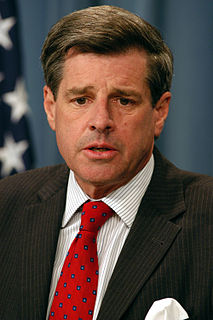A Quote by Cory Gardner
We have antiquated policies that were put in place in the 1970s that prohibit us from exporting our crude oil, yet we have allies around the globe asking the United States to provide them with a stable supply of energy.
Related Quotes
We're supposed to believe that oil had nothing to do with it, that if Iraq were exporting pickles or jelly and the center of world oil production were in the South Pacific that the United States would've liberated them anyway. It has nothing to do with the oil, what a crass idea. Anyone with their head screwed on knows that that can't be true.
This morning, prompted by increasing concerns about terrorism, oil prices reached a record high as the cost of a barrel of crude is a whopping $44.34. Wow, it seems shocking that a product of finite supply gets more expensive the more we use it. Now the terror alert means higher oil prices, which oddly enough means higher profits for oil companies giving them more money to give to politicians whose policies may favor the oil companies such as raising the terror alert level. As Simba once told us: "It's the circle of life."
States like these [Iran, Iraq, North Korae], and their terrorist allies, constitute an axis of evil, arming to threaten the peace of the world. By seeking weapons of mass destruction, these regimes pose a grave and growing danger. They could provide these arms to terrorists, giving them the means to match their hatred. They could attack our allies or attempt to blackmail the United States. In any of these cases, the price of indifference would be catastrophic.
Rex Tillerson is 's in the business of exploring and finding oil across the globe. You have to go where the oil is at, and the fact that he actually has a relationship with people like Vladimir Putin and others across the globe is something that shouldn't be - we shouldn't be embarrassed by it, it's something that I think could be a huge advantage to the United States.
Today I weep for my country. No more is the image of America one of strong, yet benevolent peacekeeper. ... Around the globe, our friends mistrust us, our word is disputed, our intentions are questioned. We flaunt our superpower status with arrogance....After war has ended the United States will have to rebuild much more than the country of Iraq. We will have to rebuild America's image around the globe.
































